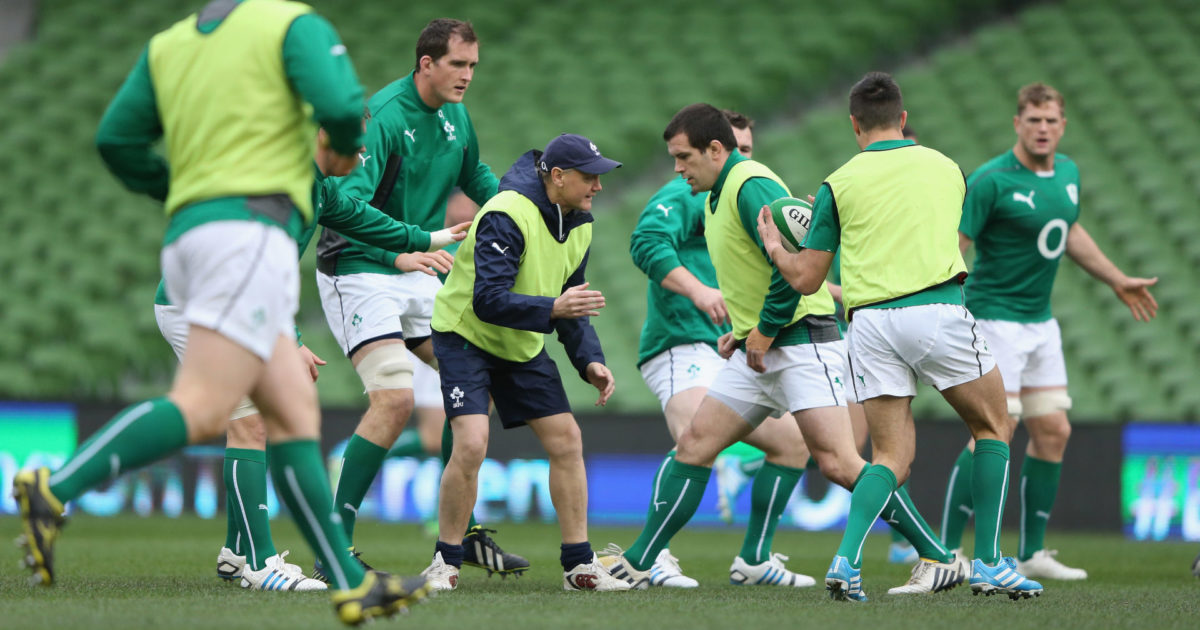On this day in 2013: Joe Schmidt appointed Ireland coach

Joe Schmidt was appointed Ireland head coach on April 29, 2013, beating off competition from Les Kiss and Ewen McKenzie to take the post.
Schmidt was promoted from Leinster, who triumphed in the Heineken Cup in 2011 and 2012 under the New Zealander, after the departure of Declan Kidney following Ireland’s limp fifth-place finish in the RBS 6 Nations.
Here, the PA news agency looks at the highs and lows of Schmidt’s reign:
LOW
A week after pummelling Samoa 40-9 in the 2013 autumn internationals, their biggest win over the Pacific Islanders, Ireland were brushed aside by Australia. They were then on the verge of a historic win over New Zealand in Dublin but Ryan Crotty’s converted try in injury-time saw the All Blacks triumph 24-22 to make it 14 victories in as many games that year.
HIGH
The agonising loss to the Kiwis did not dampen Ireland’s spirit, though, as Schmidt’s side won the Six Nations in 2014 and 2015. Either side of the championships, they demonstrated just how far they had come under Schmidt with victories over South Africa and Australia, completing a clean sweep of wins in the autumn internationals for the first time since 2006.
LOW
While Ireland topped their 2015 World Cup group with four wins out of four, they went into a quarter-final date against Argentina shorn of key performers Paul O’Connell, Johnny Sexton, Peter O’Mahony, Sean O’Brien and Jared Payne because of injury. The Pumas never looked back after opening up a 17-0 lead after 13 minutes and cruised to a 43-20 triumph at the Millennium Stadium.
HIGH
Ireland secured a first ever win on South African soil against the Springboks, prevailing 26-20 at Cape Town. South Africa edged the 2016 summer series with wins at Johannesburg and Port Elizabeth but Ireland then recorded their first success against New Zealand at the 29th attempt with a 40-29 victory in Chicago in November. Later that month a win over Australia meant Ireland became the first side since England in 2003 to defeat the Wallabies, New Zealand and South Africa in a single year.
HIGH
Ireland won the Six Nations for the third time under Schmidt in 2018 but this time defeated all comers to claim the Grand Slam for the first time in nine years. More history was to follow as they defeated Australia in two of three matches for their first series win Down Under since 1979. They then capped an incredible year by edging out New Zealand 16-9 in November, their first win over the Kiwis at Dublin.
HIGH
Ireland’s efforts over the course of the preceding months led to Schmidt being named World Rugby coach of the year but just a day later he revealed he would be retiring from coaching after the 2019 World Cup. However, a 19-10 win over Wales in his last match at the Aviva Stadium led to another first for Ireland, who made sure they would go into the global tournament as the top-ranked side.
LOW
As one of the sides heavily fancied pre-World Cup, it came as a shock when Ireland were beaten by tournament hosts Japan, who produced a performance for the ages to see off Schmidt’s side in Shizuoka. A second-place finish in the group left them with the daunting task of New Zealand in the knockout rounds. A 46-14 defeat extended Ireland’s run of never having progressed beyond the quarter-finals as Schmidt’s highly-successful spell ended on a bum note.
Press Association

























































